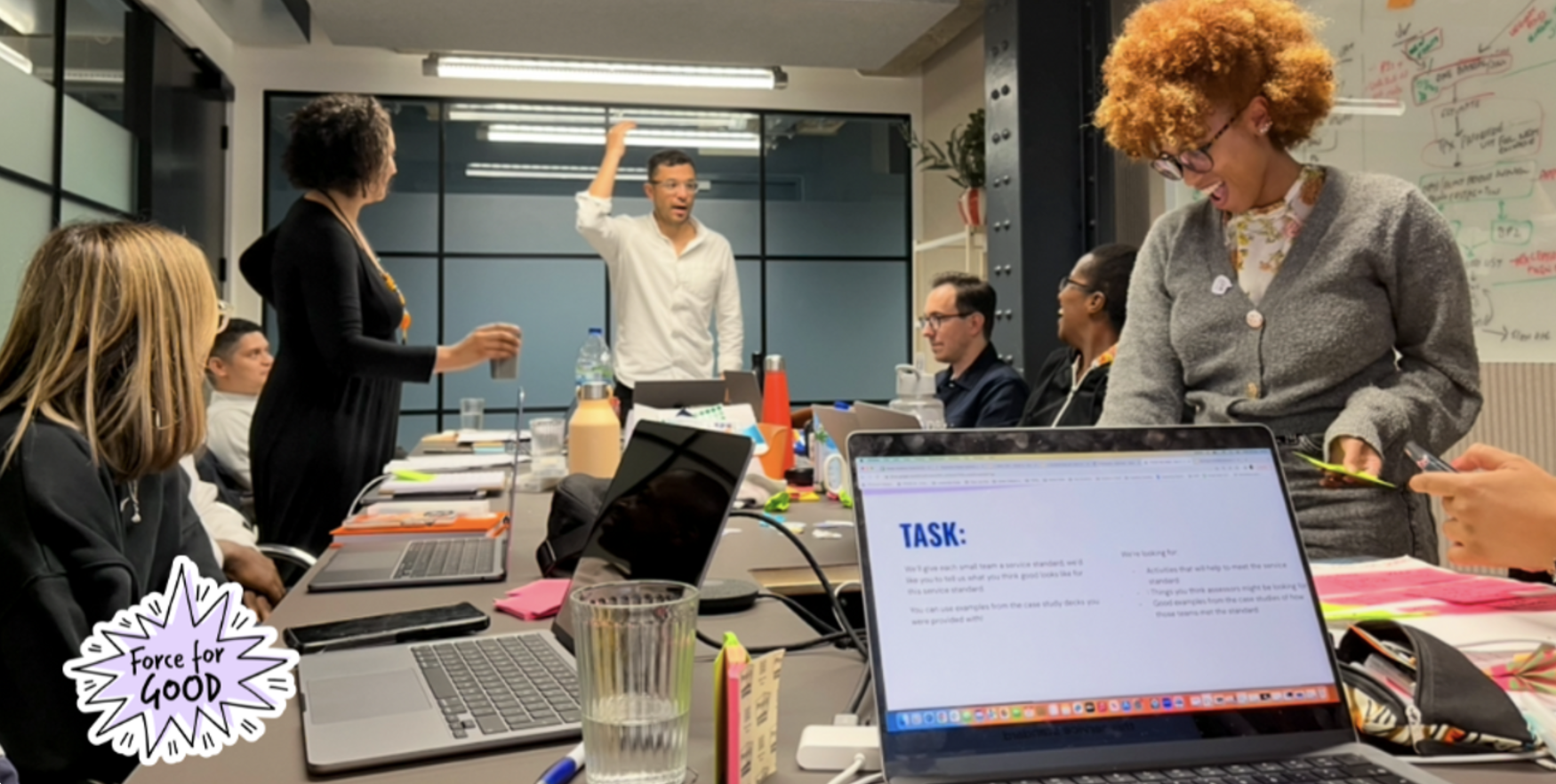Collaboration between the public and private sectors has been a key part of delivering services for years now. In 2023, a third of government spending went on the procurement of services from third-party providers according to Tussell, demonstrating how important these relationships are to industry, the economy and the country.
At TPXimpact we take the value of these partnerships seriously, which is why we’re committed to empowering organisations to operate sustainability and avoid the co-dependency which partnerships can sometimes create.
Finding the right partnership matters when it comes to turning policy into action. After they’ve procured, policymakers often find themselves distanced from those delivering the strategies, especially those front-line workers in the private sector. The gap between public and private can worsen existing siloes.
As a civil servant for 10 years, I saw that nearly everything in the public sector depends on the private sector. Finding the right partner—valuable, not just cheap—can be one of the most influential actions a public servant can take. I remember a colleague once quipping, "It's not about finding the cheapest lorry, it's about finding the one that won't break down halfway through the journey."
Just as policy and delivery need to be united, so do the public and private sectors if we are to achieve sustainable quality of life improvements in the UK.
The incentive misalignment
It’s simple but worth calling out for what it is: One of the primary challenges to successful collaboration between the public and private sectors is the misalignment of incentives. In the public sector, civil servants have to juggle many priorities: keeping ministers happy, delivering value for taxpayers, adhering to legal obligations, and maintaining the best interests of staff and stakeholders. This wide range of responsibilities and needs to meet often comes at the expense of speed and efficiency.
In contrast, without being reductionist, private sector organisations typically operate with a focus on the bottom line. This allows them to deliver projects quickly and efficiently—precisely what the public sector wants when engaging private partners—but it can sometimes lead to a misunderstanding or even disregard of broader public priorities.
Private sector organisations need to appreciate that the public sector’s success is measured not just in financial terms but in social outcomes and public trust. Likewise, public sector teams should be open to adopting the private sector’s efficiency-driven mindset where appropriate, but without losing sight of their own broader responsibilities.
The communication challenge
Effective communication is crucial for any successful project, but it’s often where public-private partnerships break down. Differences in language, mindset, and procurement processes can create barriers to trust and mutual understanding.
Procurement approaches often add an extra layer of complexity. Their primary purpose is to ensure legal and financial due diligence, but the process can create mistrust between organisations, with government teams feeling distanced from their private partners. This can quickly escalate if private companies fail to grasp the complexities of the environment they’re working in.
To navigate this, government teams must choose private sector partners wisely—those who understand not only the functional demands of a project but also the cultural and social context in which public sector teams operate. Communication needs to be multi-layered, both functional (focused on practical tasks and shared responsibilities) and emotional/social (building rapport, trust, and a shared sense of purpose).
Culture and complexity
The cultural and procedural differences between public and private sector teams also pose significant challenges.
In my experience, long-term success in these more complex projects is unlikely if the private sector partner does not fully understand the intricate workings of the public sector. Government projects are often influenced by multiple stakeholders, layers of governance, legal obligations, and the ever-present scrutiny of taxpayers and the media. Private companies used to quicker decision-making processes might find this frustrating, but it’s essential that they respect the broader context in which public sector teams operate. They also underestimate the skills required to deliver quality work in complex environments, which ultimately ends up costing the public sector more.
Both sectors need to build a deeper understanding of cultural complexities to succeed. Public sector teams should not shy away from explaining the complexity of their projects to private sector partners. Similarly, the private sector must be willing to adapt to the unique demands of public sector delivery, even if it means slowing down processes to meet legal or ethical standards.
Working together to deliver for everyone
Public-private partnerships are key to bridging the gap between policy and delivery. By combining the efficiency and innovation of the private sector with the social responsibility and long-term thinking of the public sector, we can achieve far more together than either sector could alone.
Success depends on how well both sides understand and work with each other. By aligning incentives, fostering effective communication, and acknowledging the complexity of public sector projects, we can build collaborations that deliver real results for citizens.
The public sector needs partners who can do more than just execute tasks—they need collaborators who understand their world, share their vision, and are committed to delivering outcomes that make a meaningful impact. Only by deepening our understanding of how this relationship works well can we ensure its success. As the old saying goes, "If you want to go fast, go alone. If you want to go far, go together."

From arrows to bridges: Uniting policy and delivery in public services
Overcoming distance, complexity, mindset, and communication to unite policy and delivery teams for lasting public sector success.
Read more
Transformation from the inside out
Internal academies build skills, confidence and connection from the inside out. They help teams work on real challenges, share honestly, and grow together, turning learning into lasting change.
Read moreOur recent insights
Transformation is for everyone. We love sharing our thoughts, approaches, learning and research all gained from the work we do.

Budget 2025 reveals how digital funding really works
Background: The Budget was announced yesterday, it’s not announcing big new programmes of work - it’s fine tuning how the government's fiscal policy supports existing policy objectives. There’s takeaways for all digital leaders from this announcement and some thoughts about that to do next.
Read more
Unlocking the benefits of AI for charities
How human-AI collaboration can help charities get true value from their data, turning insights into impact.
Read more
What's the future for open data in the UK?
A decade ago, the UK was a leader in open data, but its prominence has faded. We examine why the focus has shifted and what the future holds for the role of open data in the public sector.
Read more

